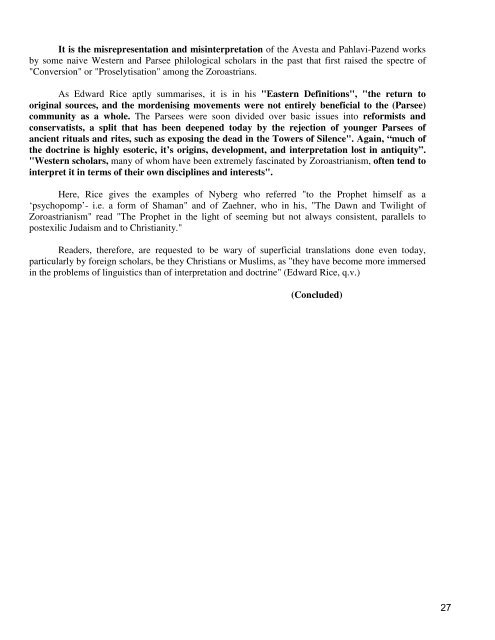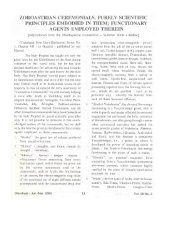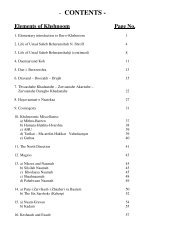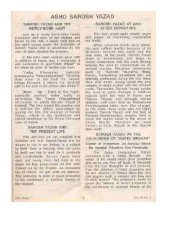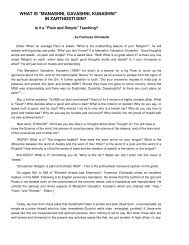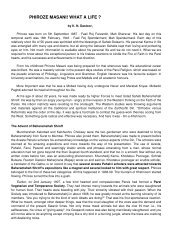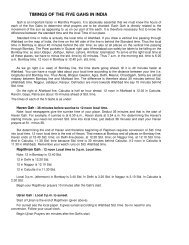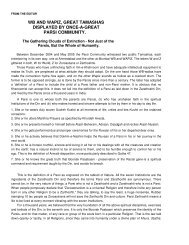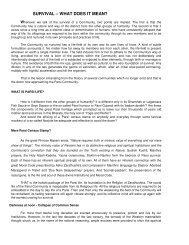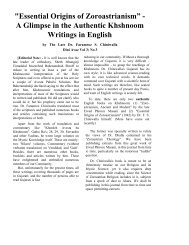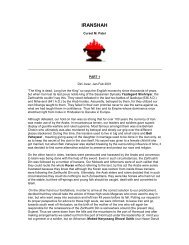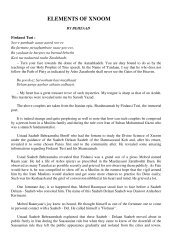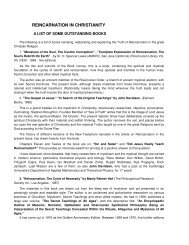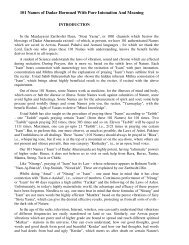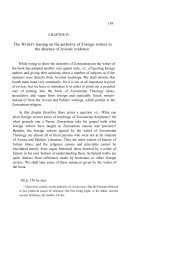Acceptance – Never Ever. - Traditional Zoroastrianism: Tenets of the ...
Acceptance – Never Ever. - Traditional Zoroastrianism: Tenets of the ...
Acceptance – Never Ever. - Traditional Zoroastrianism: Tenets of the ...
You also want an ePaper? Increase the reach of your titles
YUMPU automatically turns print PDFs into web optimized ePapers that Google loves.
It is <strong>the</strong> misrepresentation and misinterpretation <strong>of</strong> <strong>the</strong> Avesta and Pahlavi-Pazend works<br />
by some naive Western and Parsee philological scholars in <strong>the</strong> past that first raised <strong>the</strong> spectre <strong>of</strong><br />
"Conversion" or "Proselytisation" among <strong>the</strong> Zoroastrians.<br />
As Edward Rice aptly summarises, it is in his "Eastern Definitions", "<strong>the</strong> return to<br />
original sources, and <strong>the</strong> mordenising movements were not entirely beneficial to <strong>the</strong> (Parsee)<br />
community as a whole. The Parsees were soon divided over basic issues into reformists and<br />
conservatists, a split that has been deepened today by <strong>the</strong> rejection <strong>of</strong> younger Parsees <strong>of</strong><br />
ancient rituals and rites, such as exposing <strong>the</strong> dead in <strong>the</strong> Towers <strong>of</strong> Silence". Again, “much <strong>of</strong><br />
<strong>the</strong> doctrine is highly esoteric, it’s origins, development, and interpretation lost in antiquity”.<br />
"Western scholars, many <strong>of</strong> whom have been extremely fascinated by <strong>Zoroastrianism</strong>, <strong>of</strong>ten tend to<br />
interpret it in terms <strong>of</strong> <strong>the</strong>ir own disciplines and interests".<br />
Here, Rice gives <strong>the</strong> examples <strong>of</strong> Nyberg who referred "to <strong>the</strong> Prophet himself as a<br />
‘psychopomp’- i.e. a form <strong>of</strong> Shaman" and <strong>of</strong> Zaehner, who in his, "The Dawn and Twilight <strong>of</strong><br />
<strong>Zoroastrianism</strong>" read "The Prophet in <strong>the</strong> light <strong>of</strong> seeming but not always consistent, parallels to<br />
postexilic Judaism and to Christianity."<br />
Readers, <strong>the</strong>refore, are requested to be wary <strong>of</strong> superficial translations done even today,<br />
particularly by foreign scholars, be <strong>the</strong>y Christians or Muslims, as "<strong>the</strong>y have become more immersed<br />
in <strong>the</strong> problems <strong>of</strong> linguistics than <strong>of</strong> interpretation and doctrine" (Edward Rice, q.v.)<br />
(Concluded)<br />
27


